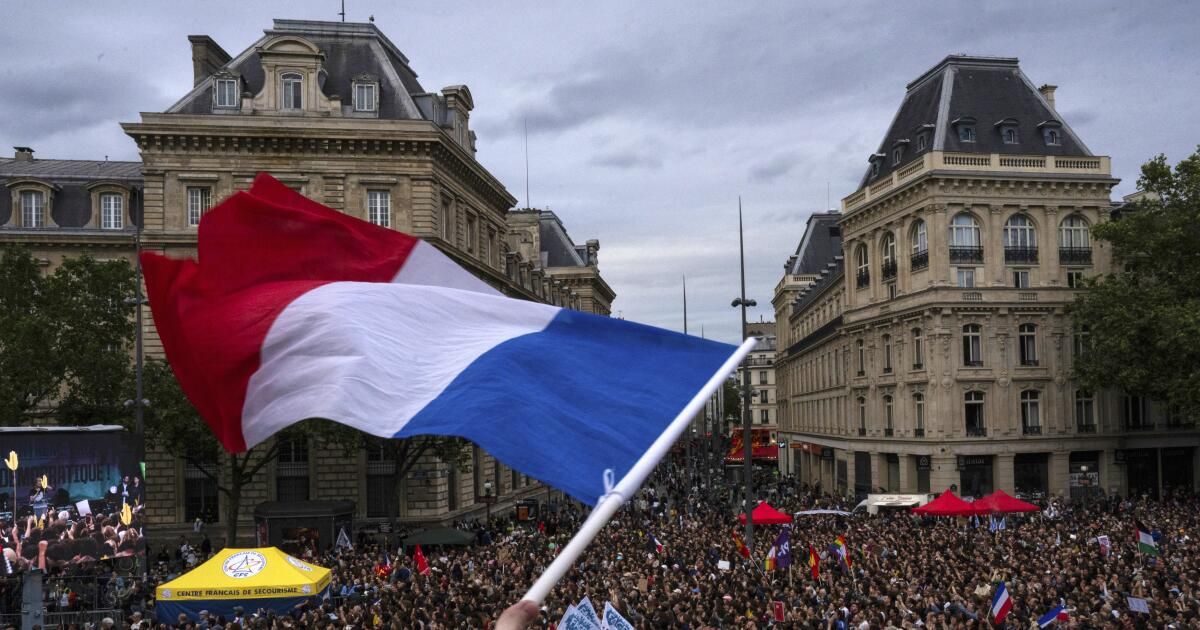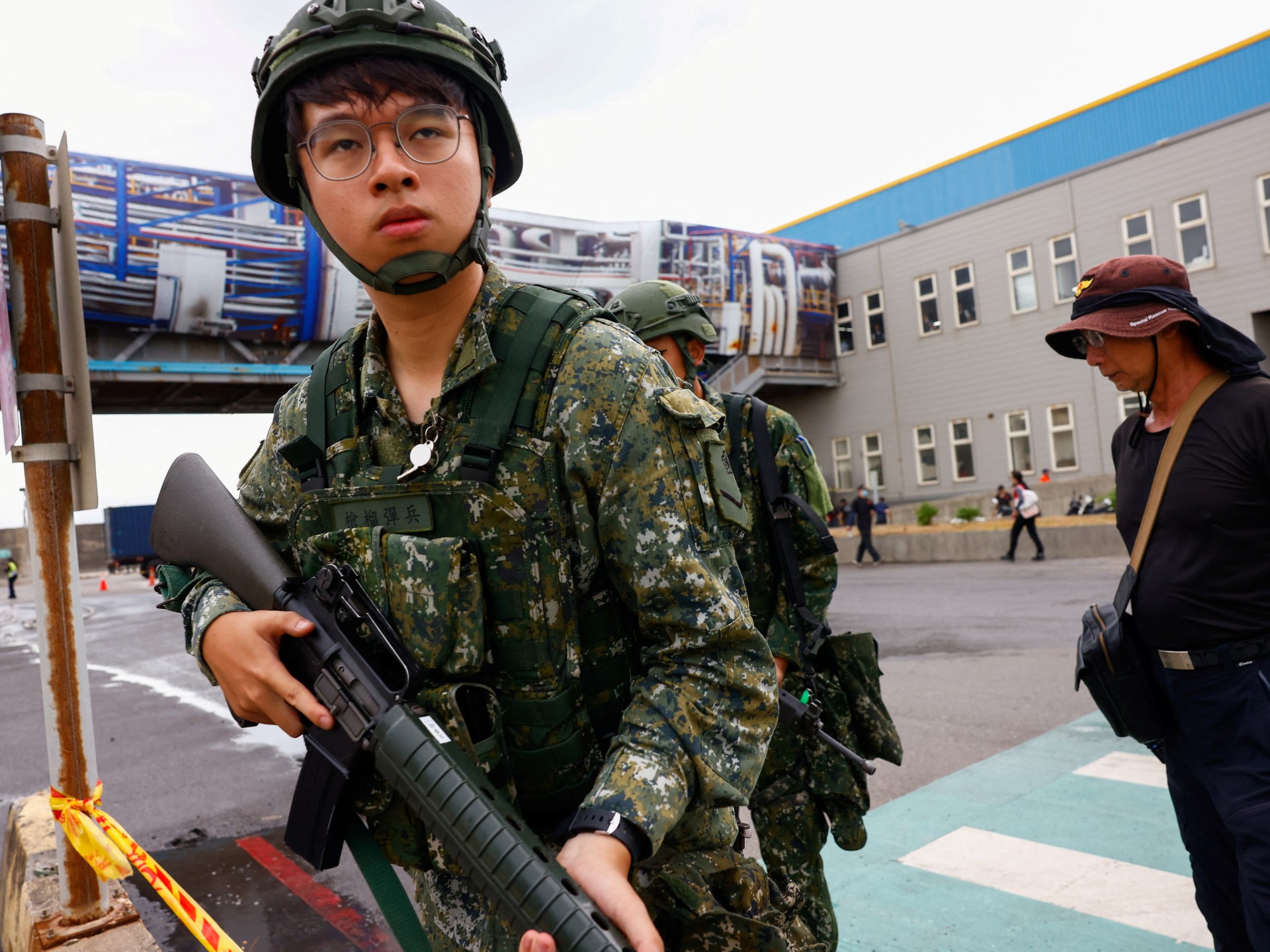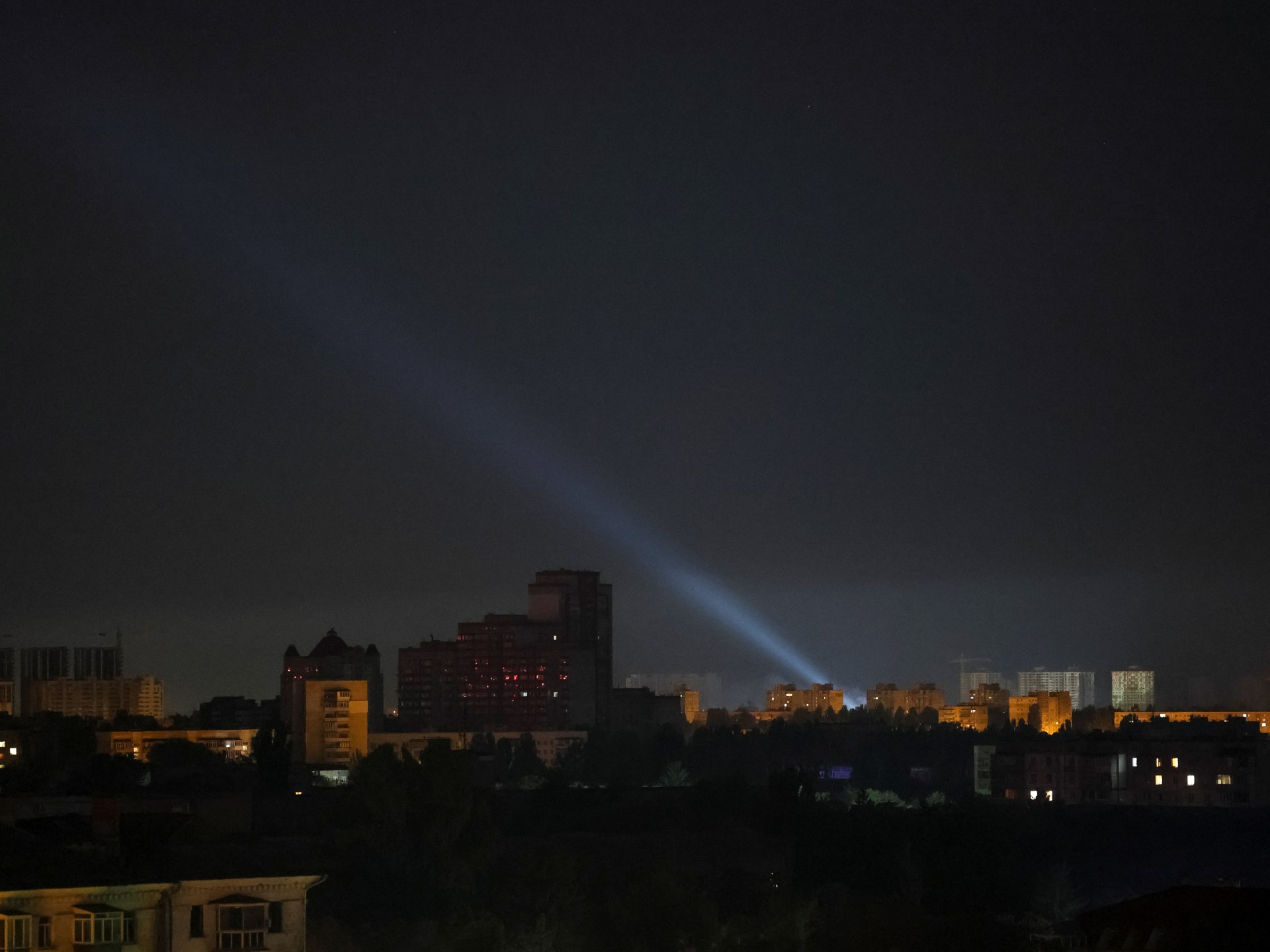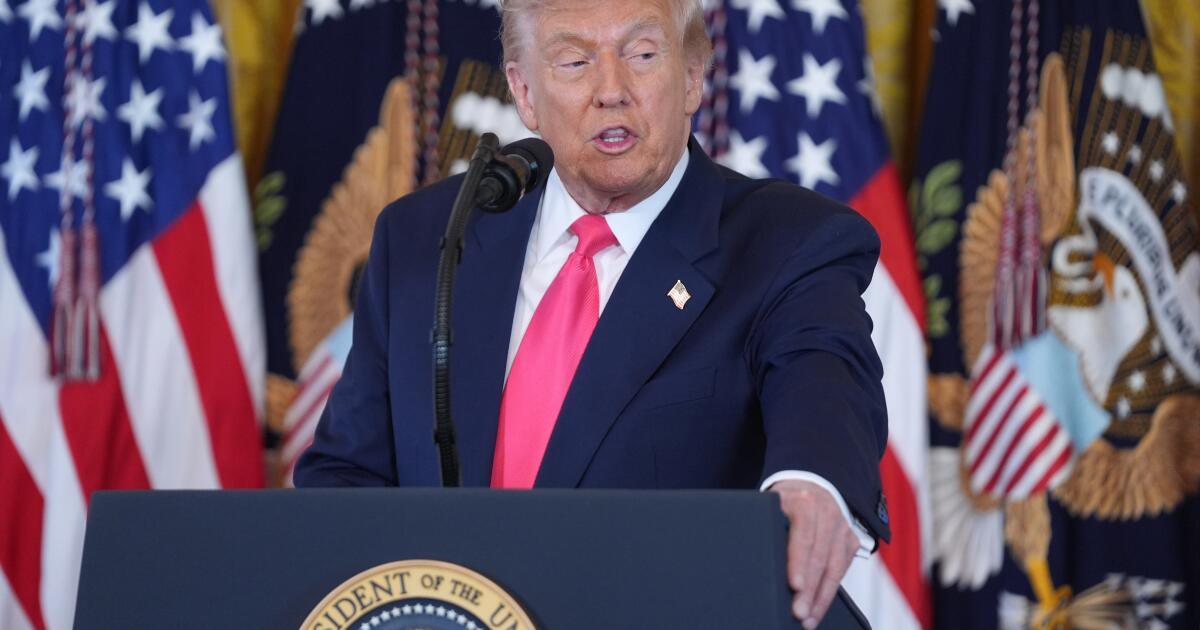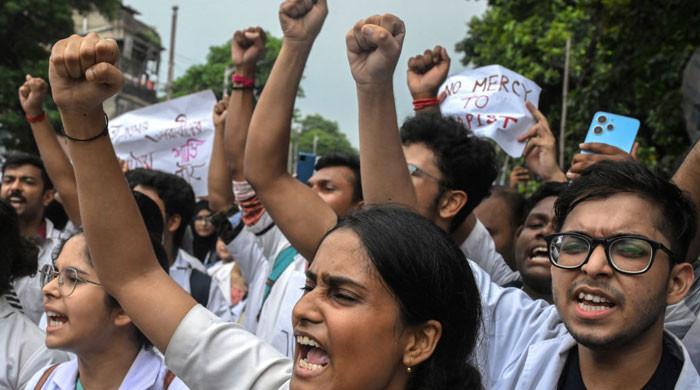With all the tumult surrounding the 2024 Summer Olympics — issues big and small — it’s not entirely surprising that Parisians have threatened to stage a “poop protest.”
Their anger is focused on a plan to allow triathletes and marathon swimmers to compete in the River Seine, which has been polluted by sewage and garbage for centuries.
It was no use when Mayor Anne Hidalgo offered to take a dip in the iconic waterway. A website with a poop emoji as a mascot sprang up to coordinate hundreds, if not thousands, of people who would defecate on the banks on the day of their swim.
While it remains to be seen whether the mayor – and her constituents – will follow through on their respective promises, the Paris 2024 organising committee has plenty more to deal with. With less than two weeks to go until the opening ceremony, the list includes budget increases and worrying poll numbers, a government investigation and political turmoil at home and abroad.
None of this means that the Games are doomed to failure. Paris will offer a stunning backdrop, with beach volleyball at the foot of the Eiffel Tower and equestrian events at Versailles. These will be the first Games after the pandemic, and promise a huge turnout and lively street life.
But the recent turmoil underlines the complexity of hosting thousands upon thousands of athletes and fans from around the world. French President Emmanuel Macron acknowledged to the AFP news agency that the Olympic Games, regardless of where they are held, are bound to create “inconveniences.”
History shows that some cities have successfully navigated the obstacles. The 1984 Los Angeles Olympics, for example, offered a thrilling competition and ended with hundreds of millions in surplus revenue. Other hosts have not been so fortunate.
Montreal and Athens ran up huge debts. Rio de Janeiro spent billions on new venues that were left virtually unusable. The 1972 Munich Games were marred by the infiltration of the athletes' village by Palestinian terrorists, an attack that killed 11 members of the Israeli team.
More recently, Tokyo and Beijing have struggled to generate revenue amid COVID-19 restrictions.
Paris believes its gamble will pay off. “It will do good for our country,” Hidalgo said when his city was named host in 2017.
Paris Mayor Anne Hidalgo, left, and Tony Estanguet, head of the Paris 2024 Olympic organizing committee, stand together in front of the Eiffel Tower on June 7.
(Michel Euler/Associated Press)
The main concern at any Olympics is funding, and in the case of Paris, a plan to cover most expenses with money raised privately. As the budget has grown to $10 billion, organizers have come under increased scrutiny, including an investigation into construction contracts they awarded and a decision to pay President Tony Estanguet an annual salary of $290,000 plus incentives.
Last summer, the French Court of Auditors cited “uncertainties” in the budget and suggested that, depending on the revenue generated, the Games could require an injection of $3.2 billion or more in public funds. Amid complaints about ticket prices, a 2023 survey suggests that 44% of residents in and around Paris have come to think that hosting the Games is “a bad thing.”
“For us, an event of Olympic proportions cannot take place without corruption,” declared Saccage 2024, a French anti-Olympic coalition. “It is the scale of the event that makes it necessary, whatever the country.”
Unions representing public sector employees such as police and air traffic controllers have demanded bonuses for working the 17 days of the Games, which coincide with France's traditional summer holidays. The threat of strikes could paralyse the city.
Activists have raised concerns about the displacement of homeless people, and national restrictions on customary Islamic dress have sparked debates over what visiting athletes and visitors will be able to wear.
As if all this weren't enough, Macron recently called a snap election that could have handed power to the far-right National Rally party. Although the left-wing New Popular Front coalition won, and Macron's centrist party came in second, lawmakers must now forge new alliances to avoid parliamentary disarray.
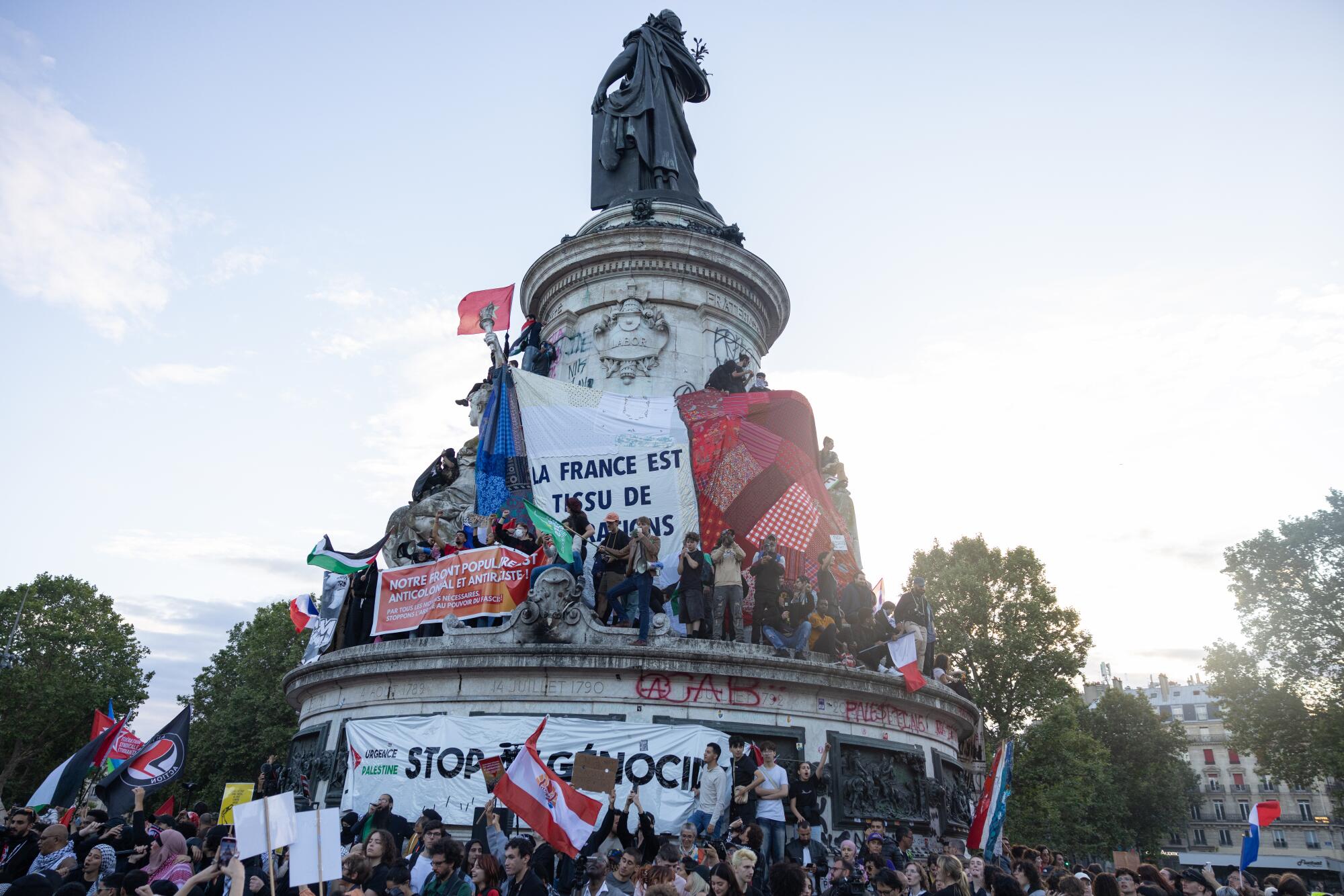
Supporters of the left-wing New Popular Front union gathered during a protest at the Place de la République in Paris on July 7.
(Anadolu via Getty Images)
Organizers “probably had every contingency scenario on their operations sheet,” said Michael Payne, an executive with the International Olympic Committee. “They certainly didn’t have that one.”
Nor could they have foreseen that wars between Russia and Ukraine and Israel and Hamas would force them to deal with street protests and disagreements over which athletes should or should not be invited.
So the world is waiting to see what happens next. The authorities in Los Angeles, which will host the event in 2028, are especially grateful.
“If someone has done it before me, I want to know what they have learned,” said Mayor Karen Bass after a recent fact-finding mission to France. “Pros and cons.”
Paris organisers can only hope that their Olympics follow a familiar trend.
The Games often generate controversy in the weeks and months leading up to the Games. As Payne said: “It’s not easy to put all this together because the organising committee is under scrutiny. The slightest problem of exploitation.”
Then the opening ceremony will take place.
On July 26, Paris will host a groundbreaking celebration in which officials and athletes will sail down the Seine in boats. An executive from the organizing committee swam in the river over the weekend and Hidalgo kept vowing to take the plunge, citing recent tests showing what she called acceptable levels of bacteria.
Once the competition has started, gold medals and world records dominate the headlines, while television accentuates the focus with clever, carefully framed camera shots. Public opinion tends to shift in a positive direction.
“Organizers and the IOC are praying for the sport to start,” Payne says. “Once they start, that becomes history.”
For 17 days. After that, people can complain again.

